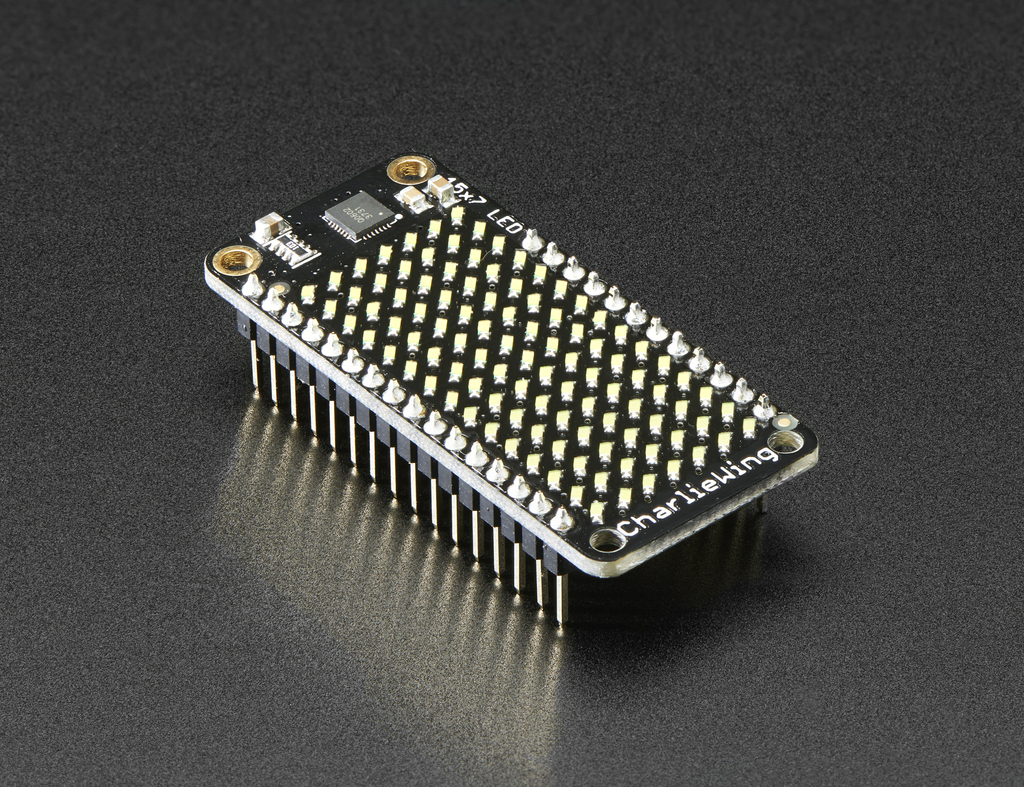CharlieWing Plex LED Display
Intro
Contents
Plex and I2C Words
oled-emit works like the standard word emit. It blocks the calling thread, as long as the character is not written to the OLED display (less than 300 us for a 6x8 character and 400 kHz I2C). Horizontal (x) position is in pixel (0 to 127), vertical position (y) is in lines, a line consists of 8 pixels. Larger fonts takes more than one line.
plex-emit ( Char -- ) Emits a character (writes a character to the OLED display)
plex-emit? ( -- Flag ) OLED ready to get a character (I2C not busy)
hook-emit ( -- a-addr ) Hooks for redirecting terminal IO on the fly
hook-emit? ( -- a-addr )
plexpos! ( x -- ) Set Plex cursor position,
x horizontal position, for 6x8 font max. (15 / 6) -1, depends on the font's x size
plexpos@ ( -- x ) Get the current Plex cursor position
plexclr ( -- ) Clears the Plex display, sets the cursor to 0
plexfont ( u -- ) Select the font, u: 0 6x8, 1 8x8
I2Cdev ( u -- ) Sets the 7-bit I2C address
I2Cput ( c-addr u -- ) c-addr buffer address for the message with lengh u to send
I2Cget ( c-addr u -- ) c-addr buffer address for the message to receive
I2Cputget ( a1 u1 a2 u2 -- ) a1 buffer address for the message to send, a2 buffer address for the message to receive
Usage
It is easy to redirect the terminal output to the Plex display, to use the string formatting words.
: count-down ( -- )
plexclr
hook-emit @ \ save emit hook
-1 -1 -1 alarm! \ an alarm every second
wait-alarm
10 0 do
['] plex-emit hook-emit ! \ redirect terminal to plex-emit
i 25 * plexpwm
0 plexpos!
10 i - .
wait-alarm
loop
0 .
hook-emit ! \ restore old hook
cr ." 0 Launch!"
;
Marquee

This work by Peter Schmid is licensed under a Creative Commons Attribution-ShareAlike 4.0 International License.

| I | Attachment | History | Action | Size | Date | Who | Comment |
|---|---|---|---|---|---|---|---|
| |
feather_3138_iso_demo.jpg | r1 | manage | 758.0 K | 2021-04-23 - 20:09 | PeterSchmid |
Topic revision: r4 - 2021-05-02 - PeterSchmid
Ideas, requests, problems regarding TWiki? Send feedback




